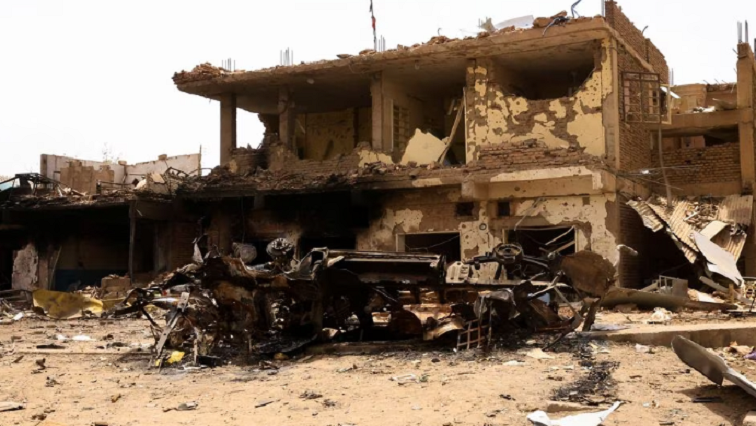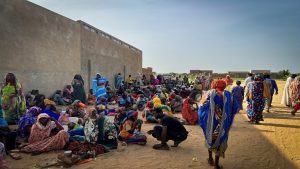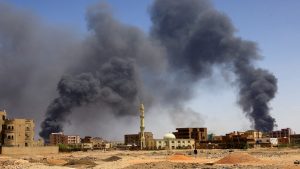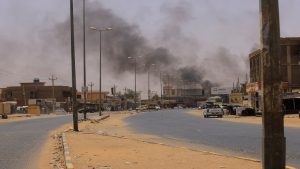Sudan’s sudden eruption into war has strangled exports of key goods including gold, sesame, peanuts and meat, traders based in Dubai say, depriving it of the foreign currency needed to import staple goods.
Fighting between the army and paramilitary Rapid Support Forces is fiercest in Khartoum and has closed the airport, shut down banks, cut power to businesses and halted shipping as armed men have looted offices, factories and warehouses.
Foreign currency from exports, particularly from the $2 billion gold trade through Dubai, is vital for impoverished Sudan to import fuel, wheat, medicine and food as it grapples with a humanitarian catastrophe.
The fighting has already killed hundreds and pushed 850 000 people from their homes. The trade problems will only exacerbate that misery in a country where a quarter of people relied on food aid even before the fighting erupted last month.
Legal gold exports to Dubai have stopped completely because they rely on air shipments and Sudanese airspace has closed to most flights, a gold importer in the Emirate said.
“That means there will be no proceeds to import key commodities, and that will cause the pound to tumble,” he added. He and other traders spoke to Reuters on condition of anonymity to discuss business and property losses.
Dubai has long served as a hub for Sudanese exporters as economic sanctions isolated Sudanese companies and made foreign transactions difficult.
Those remaining in Khartoum, the country’s business hub, are struggling with outages of basic utilities, dwindling cash and food supplies, as well as sky-rocketing fuel prices.
“Anything that goes through Khartoum you can’t do,” said one shipping agent, noting that banks had been looted and the centralised banking and customs systems were down, with only deposits and withdrawals possible in the peripheries.
Commercial shipping through Port Sudan, the main maritime hub, has also stopped completely, a port official said, with major shipping companies pausing new bookings.
Sudan’s Finance Minister Jibril Ibrahim said that government, port, and banking officials in Port Sudan were trying to solve the problem.
“We reassure the public that commodities will flow normally, there will be no shortage of goods because of complex financial transactions,” he said, without addressing the lack of shipping activity.
Wasted Potential
Sudan’s trade deficit last year was $6.7 billion, and reforms intended to attract foreign financing caused the pound to fall rapidly as inflation rose to one of the highest levels globally.
Investors had drawn up plans for new projects, particularly in agriculture, aiming to draw on Sudan’s considerable untapped arable land and expanded processing to diversify exports beyond raw goods.
“If the war continues, Sudanese companies will be pushed out of the meat market completely because importers will not wait,” said a meat exporter, who said the opportunity to move away from livestock to butchered meat was now being lost.
Egypt, a major importer of Sudanese livestock, has already said it is considering diversifying import sources.
In the longer term, the damage done to the country’s key industrial area in neighbouring Bahri, where major plants have been burned and or looted, will hobble attempts at recovery.
“If the war ends, the private and industrial sectors will need a lot of time and support to get back to how it was before,” said a sesame, oilseeds, and sugar trader whose company has seen daily losses from unfulfilled contracts, looted warehouses, and damaged processing infrastructure.
Sudanese residents have say that police have been absent, and both sides have accused the other of participating in looting.






